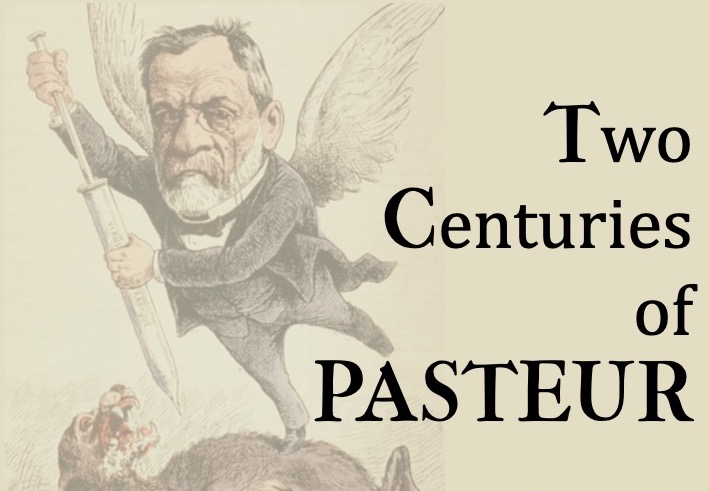
The aim of this online seminar series is to reflect on Pasteurian themes – broadly defined – on the 200th anniversary of the birth of the “father of bacteriology”. It’s not just the search for the “heritage” nor for the “pasteurization” of life sciences: we want to reflect on how Pasteurian life sciences resonate with society at large, interacting with practices and concepts in bordering disciplines. Far from aspiring to a complete map of Pasteur’s legacy, we would like these seminars to provide inspiration for further research.
ResViva Scientific and Organizing Committee: Mauro Capocci (University of Pisa), Maria Conforti (Sapienza University of Rome), Antonio Clericuzio (University of Rome 3).
- March 23th, 2023, h17.00 (CET)
VICTORIA LEE (Ohio University)
Fermentation Science as Coevolutionary History: The Pasteurian Legacy in Agroindustrial Microbiology
This talk explores the transformation of food fermentation processes in Japan and France, two differing politico-economic contexts where microbes were known and used as living workers as well as pathogens. In Japan, academic science backed the industrialization of the traditional sake and soy sauce sectors as part of the state’s economic strategy since 1900. In France, science supported small and medium-sized dairy farms through quality-related research amid European competition, especially after economic integration in 1957. The development of agroindustrial microbiology in both societies reveals an emphasis on metabolism over genetics, biodiversity as much as standardization, and ecosystem thinking alongside a focus on the individual organism. Placing the laboratory perspective in the rise of microbiology into the context of the persistence of longue durée craft knowledge during industrialization, the talk suggests some of the possibilities offered by the history of small-scale agroindustrial knowledge for addressing contemporary issues in microbiology and sustainability.
PAST EVENTS
- October 24th, 2022 h17.00 (CET) – OPENING EVENT
ROBERT BUD (Emeritus Keeper at the Science Museum, London, UK)
The Bernardian alternative: The IBPC, the materialist left and the questions of Life in the 1930s
The talk is an exploration of the association of an alternative model of ‘Life’ with a clearly articulated secularist position during the inter-war years. In 1927 the Institut Pasteur was complemented in Paris by another institute, inspired by the memory of Claude Bernard, the Institut de Biologie Physico-chemique. The leadership and many of the early members of the institute had well established and well-known political positions, several were leading Dreyfusards, associated with secularism and the Union Rationaliste, and leadership of several major Popular Front initiatives. They also had a strongly reductionist anti-vitalist programme.
- November 24th, 2022 h17.00 (CET)
AGNESE COLLINO (Biologist, Scientific Supervisor, Fondazione Umberto Veronesi)
Polio: The Italian history
Although an ancient disease, poliomyelitis never caused epidemics until the late XIX century, its incidence being highest in the most rich and hygienic contexts. We will unravel the history of this infection (in apparent contrast to the Pasteurian germ theory), concentrating in particular on the social and political consequences in Italy. Agnese Collino is the author of La malattia da 10 centesimi (Codice Edizioni, 2021).
- January 26th, 2023, h17.00 (CET)
BERT HANSEN (Professor Emeritus of History, Baruch College of the City University of New York)
Understanding Pasteur’s Use of the Fine Arts and Popular Media
Building on documentation in his articles about Louis Pasteur and the fine arts, Hansen will present a new argument that Pasteur’s active efforts in the 1880s to gain publicity for his discoveries drew upon his experiences in the art world and had important effects on his scientific career and legacy.
- February 23th, 2023, h17.00 (CET)
ARO VELMET (University of Southern California, University of Tartu)
Pasteur’s Empire: Yellow Fever Vaccination and the Politics of Colonial Infrastructure in West Africa
After World War II, the newly created World Health Organization authorized two vaccines for the prevention of yellow fever, a deadly hemorrhagic disease that was endemic primarily in West Africa, the Caribbean, and South America. One of those vaccines, the Dakar strain, was increasingly associated with sometimes fatal cases of encephalitis in children. Yet the vaccine was maintained in use until the 1970s, when it was displaced by the safer 17-D strain. This talk surveys the debates over the use of the Dakar strain, arguing that in order to understand its durability in the postwar years, we must understand the colonial origins of the knowledge and logistical infrastructures that enabled its use – particularly in West Africa.